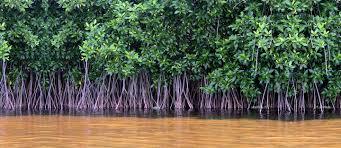Federal Minister for Maritime Affairs Muhammad Junaid Anwar Chaudhry stated on Saturday that Pakistan is home to South Asia’s largest continuous arid mangrove forest, located primarily in the Indus Delta region of Sindh — a resource with the potential to generate between $20 million and $50 million annually, depending on market demand and volume.
In his message marking the International Day for the Conservation of the Mangrove Ecosystem, the minister highlighted the success of Sindh’s Delta Blue Carbon (DBC) project, which spans over 350,000 hectares and has already generated $40 million through carbon credit sales. He added that the initiative is expected to earn billions of dollars in the decades ahead.
Chaudhry noted that although Balochistan’s mangrove coverage is significantly smaller — around 4,058 hectares — its carbon sequestration value per hectare remains comparable, offering meaningful potential as part of Pakistan’s expanding carbon market strategy.
Launched in 2015, the Delta Blue Carbon project is a public-private partnership between the Sindh government and Indus Delta Capital, focused on restoring and conserving over 3,500 square kilometers of mangrove forests in the Indus Delta.
Emphasizing the project’s international significance, the minister said that millions of carbon credits are being produced from Sindh’s mangrove-rich coastline. “Mangroves absorb four times more carbon than regular trees,” he said, underscoring their unmatched role in climate change mitigation.
He added that Pakistan is successfully running mangrove rehabilitation programmes in both Sindh and Balochistan, calling the coastal forests a critical natural defense against erosion and flooding.
“The health of our mangrove ecosystems is directly tied to the future of our fisheries, coastal tourism, and sustainable resource management,” the minister stated. “Their degradation, on the other hand, threatens the livelihoods of coastal communities and the foundations of these key sectors.”
Chaudhry also stressed the importance of expanding mangrove cover as part of Pakistan’s climate resilience efforts. “Pakistan currently ranks 7th globally in mangrove forest area,” he said, “but due to aggressive restoration efforts now gaining global recognition, we are on track to move up to 4th or 5th position.”




